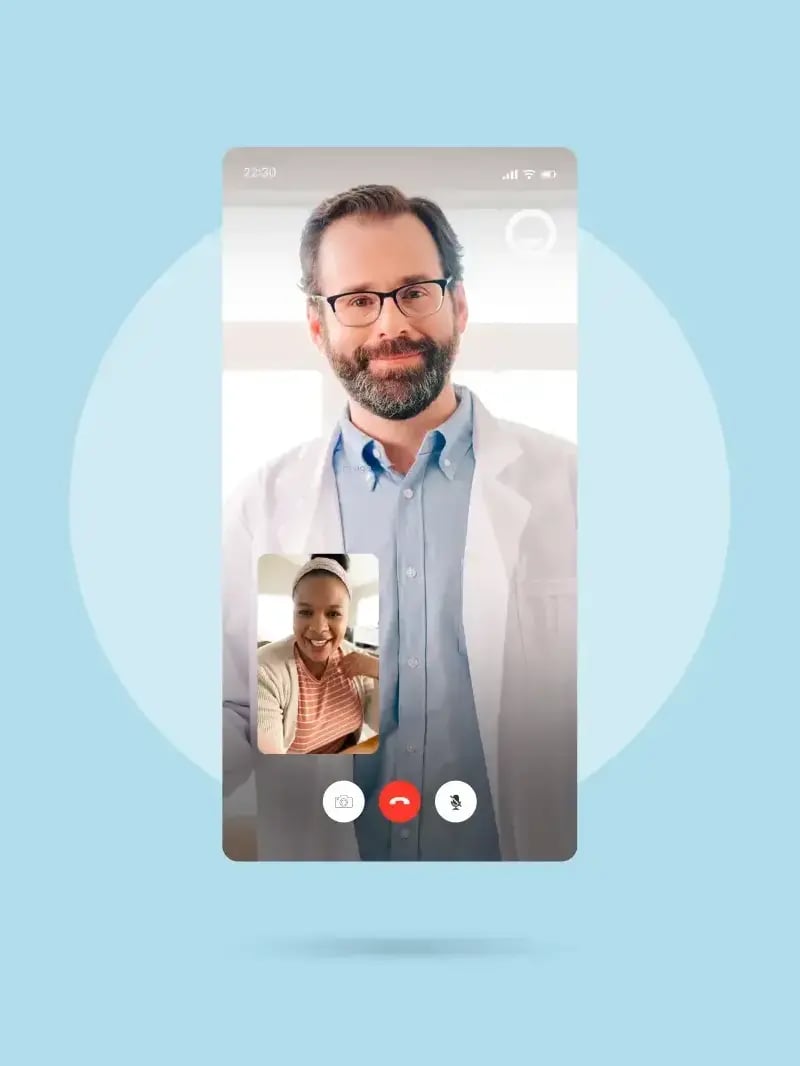How much does online therapy cost?
Online therapy visits on average can range from $65 to over $250 per session. The cost of therapy typically varies based on the therapist and whether they accept insurance.
You can see one of our trusted, licensed therapists in your state for $169 per session. If you have an FSA/HSA account, we can provide a receipt for reimbursement so you can use your FSA/HSA funds for your therapy visits. All you need to do is message the Care Team by emailing info@plushcare.com or giving us a call at 1-800-221-5140.
Is online therapy effective?
Yes, online therapy has been shown to be extremely effective. According to a 2014 study by the Journal of Affective Disorders, online therapy was found to be as effective, if not more effective, than traditional in-office therapy for depression and other mental health conditions.
A different study, also conducted in 2014 by Behavior Research and Therapy, found that online mental health services were very effective in treating anxiety disorders. Further, the improvements from online therapy were still present more than a year later.
Is online therapy covered by insurance?
Some insurance providers cover online therapy, however, coverage varies depending on your health insurance provider and plan. Reach out to your health insurance company to verify whether your online therapy service is covered.
Who is online therapy best for?
Even if you are not seeking help for a specific mental health concern, online therapy can be beneficial in providing support for people from all walks of life. Our online therapy program is for individuals 18 and older who are looking for emotional support and development from a trusted state-licensed therapist. We do not offer therapy for families, couples, or people under 18.
How is online therapy done?
Online therapy is simple and accessible. First, complete a brief assessment so we can help you find an online therapist that best fits your needs. Then, select to meet with one of our diverse, licensed therapists in your state at the time and date of your choice.
Simply connect with your online therapist via our app or website from the comfort of your home, or wherever you choose, at the time you scheduled. Our online therapy platform is completely secure and HIPAA compliant. If it's something you're considering and your provider recommends it, our mental health providers can then prescribe medication and electronically send it to the pharmacy nearest you. In addition, you'll get dedicated access to our care team, so we'll always be here for you whenever you need it.
How much is online therapy without insurance?
Online therapy visits can vary on average, anywhere from $65 to over $250 without insurance. We offer top quality, trusted, affordable online therapy in the middle of that range. We connect you with a highly qualified licensed therapist in your state who is available to listen to your concerns, for $169 per session.
Does online therapy work?
Yes, online therapy works just as well, and in some cases even better, as in person therapy. A 2018 study published in the Journal of Psychological Disorders found online therapy to be just as effective as traditional therapy for anxiety, depression, panic disorder, and more.
Can a therapist diagnose a condition?
Therapists can and often do diagnose for their own purposes to inform the treatment. However, for purposes related to work/school accommodations, most times that won’t be sufficient. In these situations, patients would need a psychiatric or physician diagnosis (ex: ADHD, other learning disabilities, etc).If you have any questions about our therapy offering, please call us at 1-800-221-540 or email us at info@plushcare.com.



